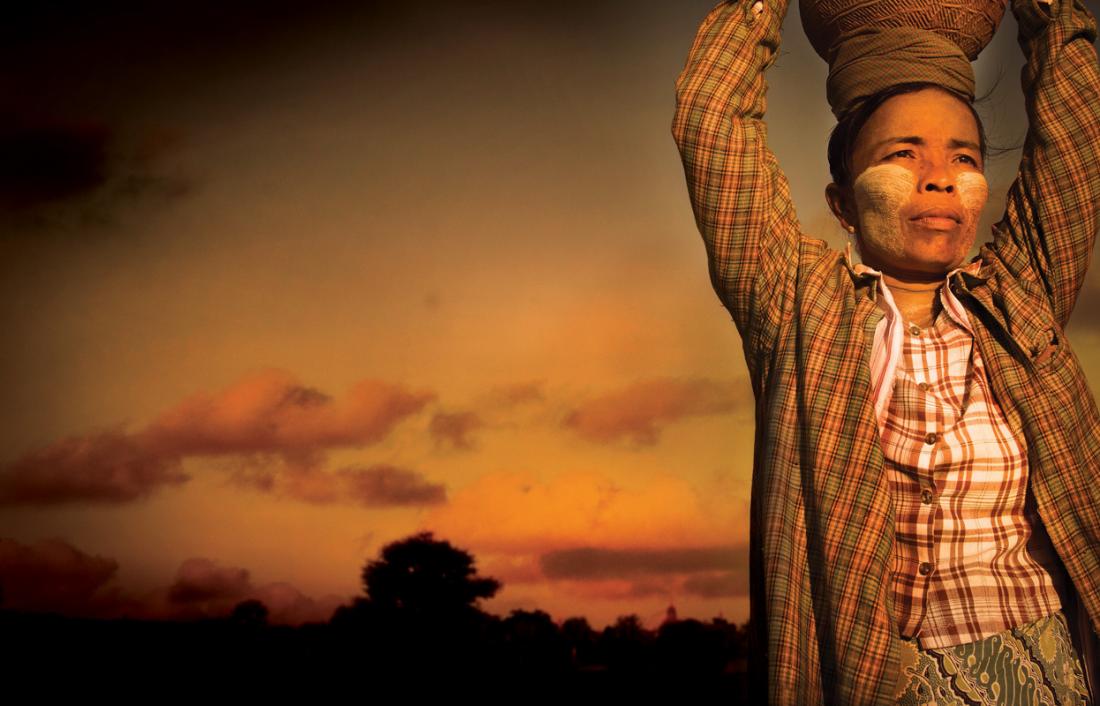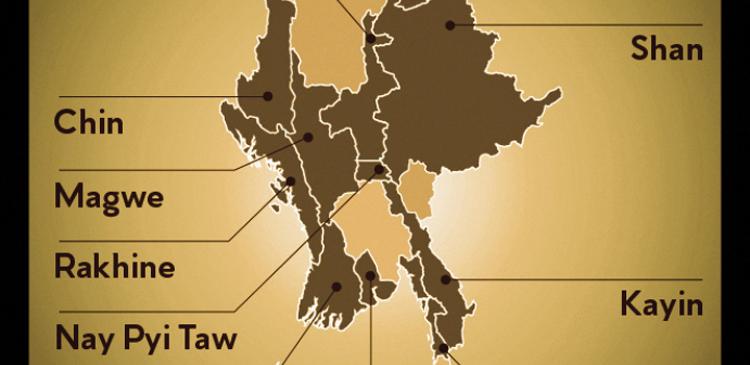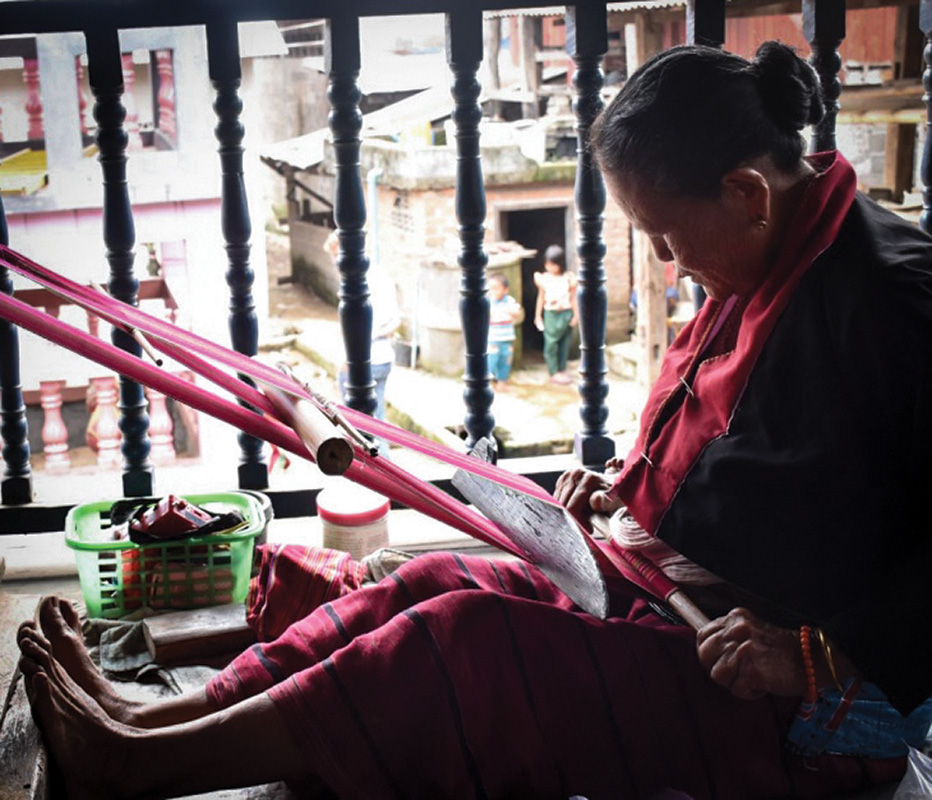There are still varying social and cultural norms across ethnic groups that bar women from taking leadership roles.
The first openly contested elections since 1988 took place in Myanmar in November 2015. As this melting pot of cultures and traditions becomes a democratic nation, challenges remain around gender inequality, informed decision-making, and establishing peace among the country’s 135 different tribes and ethnic groups. The Government of Canada and the International Development Research Centre (IDRC) have jointly funded five local research projects in Myanmar, all aimed at understanding how to effectively boost women’s roles, voices and access to resources during this transition. These projects will be ongoing in collaboration with international research partners until 2020.
Despite the resounding victory of Myanmar’s female leader, Aung San Suu Kyi, women’s representation in national, subnational and community governance remains low. While it rose from less than 5% in 2015 to more than 10% in 2016, there are still varying social and cultural norms across ethnic groups that bar women from taking leadership roles. Two of the local organizations, Gender Equality Network (GEN) and The Myanmar Institute for Integrated Development (MIID), are both researching barriers and identifying pathways to political power, aiming to address problems in culturally sensitive ways.
Gender Equality Network is working with Thailand’s Asian Institute of Technology and Canada’s McGill University to understand the factors that influence women’s and men’s opportunities and motivations to participate in politics at all levels in Myanmar. The group’s research will pay close attention to the pathways to participation, and try to identify what life experiences enable women and men to enter politics; and once involved, how they are promoted to more senior positions. They will also investigate how male and female politicians prioritize issues and think about leadership.
“Very few studies have looked at women’s political participation in Myanmar, and those that have focus on the top tiers of politics, failing to take into account progress made by women from less privileged backgrounds. Our team is attempting to fill some of the knowledge gaps,” says May Sabe Phyu, a human rights activist who heads GEN.
In Shan State, May Pannchi, research coordinator at MIID, is conducting household surveys among seven ethnic groups to identify indicators that affect women’s economic and political participation at the grassroots level. Questions around women’s livelihoods, decision-making power within the household, and their perceptions about economic and political participation will be asked, and findings will be fed back to participating communities.
“Women should be empowered in every sector,” Pannchi says. “More than half of our population is formed of women and we need to increase their capacities for economic and political involvement so that the country can develop and grow sustainably.”
DIFFERENT PRIORITIES?
Within government, there is a low level of awareness regarding the different needs of male and female citizens. Researchers at the Myanmar Institute of Gender Studies (MIGS) are focused on collecting high quality data on female and male citizens’ preferences for how budgets should be allocated in Myanmar.
Khin Ma Ma Myo, founder and director of the institute, and her colleagues, are developing an interactive budget app that encourages study participants to carefully consider trade-offs in their choices, revealing part of their thought processes and priorities. They will examine factors that feed into differences in budget preferences, such as family structure and control of household resources, as well as local and community gender customs.
“We are the first researchers to use a tablet-based budget app in this way. We hope not only to deliver better data on budget preferences, but also to inspire researchers in and out of Myanmar to adopt a similar approach,” Myo says.
Typically, studies show that females give higher priority to health and education and males to transportation. But the study will avoid putting people into gendered boxes, and the team will pay attention to more nuanced variables. Their data will inform policymakers on how different groups of citizens prefer to see the country’s resources distributed.
Funding allocations could help address gender inequality issues, the researchers note. For example, increasing provisions for public utilities, such as water supply and household electricity, could free up time spent collecting water and firewood, allowing women to do paid work, study or leisure activities.
NEGOTIATING PEACE
Despite recent progress, Myanmar remains divided with areas of conflict and tension between ethnic and tribal groups. One in five people in Myanmar lives in a conflict-affected area, notes Min Zaw Oo, academic and peace negotiator, who founded the Myanmar Institute for Peace and Security (MIPS). Operating as a start-up, MIPS is small and agile, which allows it to find innovative ways to improve lives. Oo describes the institute as a “think and do tank”.
As the government works to negotiate agreements among factions, MIPS provides technical support to negotiators, including in-depth conflict analysis with near-time situational updates and analysis, as well as policy recommendations to mitigate the severity of conflicts. The group is conducting research to advise the most effective path forward for disarmament, demobilisation and reintegration of citizens who have been active in conflict.
To help maximize the benefits of peace for women, the team is investigating how local governments can provide healthcare, education and security services tailored to meet women’s needs. They will analyse how women in government positions overseeing these programs influence how those needs are met. Regaining women’s trust in police and security forces after years of sexual violence remains a significant challenge. The team is working to understand how that might be achieved, and what roles women can play to strengthen security in ethnic minority states.
CULTURE OF RESEARCH
While much of the democratization process hinges on establishing peace, some are working to nurture social and political order through research. The Enlightened Myanmar Research Foundation (EMReF) believes that one way women can achieve positive change is by fostering a research culture among leaders.
EMReF provides training to sub-national parliaments engaging with both male and female members to improve understanding of evidence-based policy. Their work attempts to challenge policymaking based on the personal and political interests of the decision makers, and instead promote decision-making based on independent research. In doing so, the think tank aims to improve the country’s research culture as a whole.
EMReF is also investigating Myanmar’s political landscape more broadly, including how Myanmar’s traditionally patriarchal social structure inhibits women’s access to running for office, existing voter bias against female candidates, and equal access to justice. Myat Thet Thitsar, CEO of EMReF says, “We want to see the new generation living in a society free from armed conflicts and embracing the intrinsic values of human beings.”
---------------------------
Did you know?
Men in Myanmar are twice as likely as women to engage in paid work.
-----------------------------
For further information, contact:
Knowledge for Democracy Myanmar Initiative
International Development Research Centre
E-mail: [email protected]
May Pannchi
Myanmar Institute for Integrated Development
E-mail: [email protected]
Khin Ma Ma Myo
Myanmar Institute of Gender Studies
E-mail: [email protected]
May Sabe Phyu
Gender Equality Network
E-mail: [email protected]
Min Zaw Oo
Myanmar Institute for Peace and Security
E-mail: [email protected]
Myat Thet Thitsar
Enlightened Myanmar Research Foundation
E-mail: [email protected]





